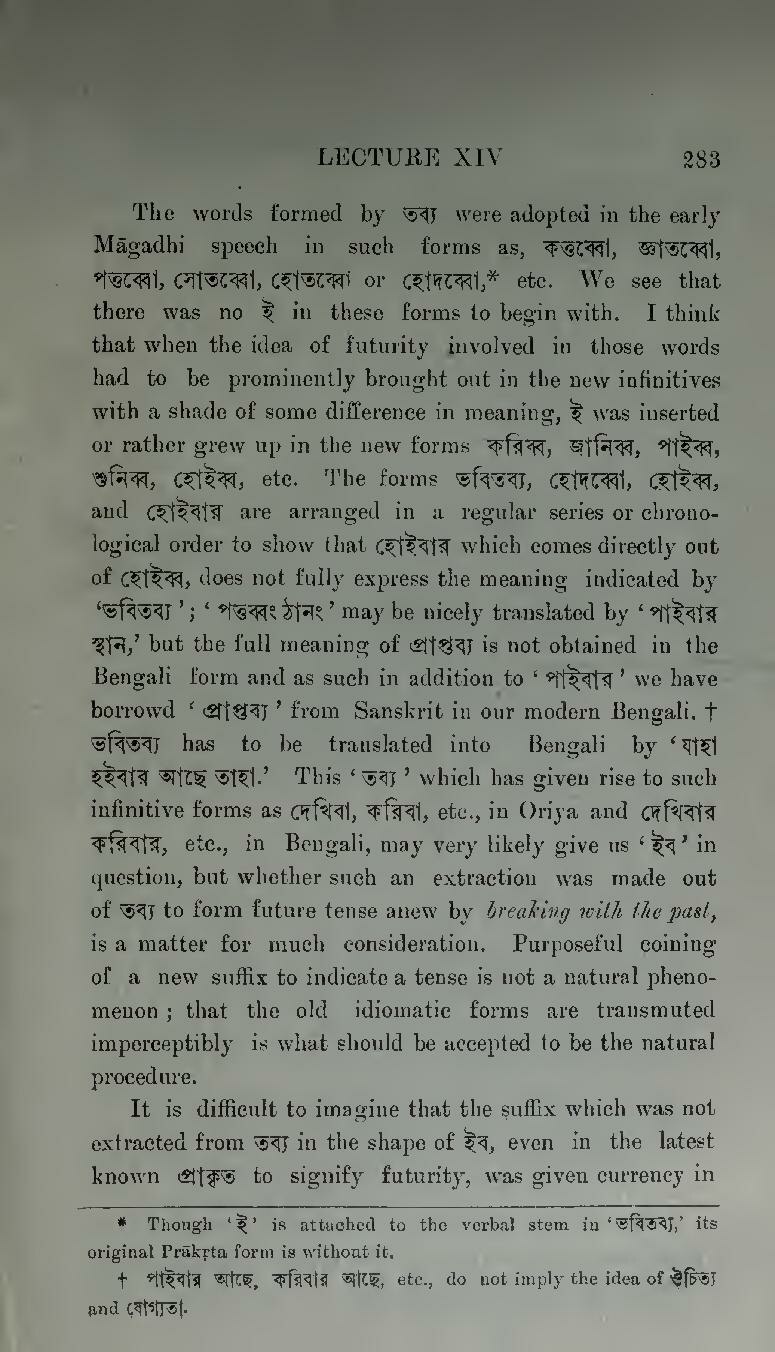The words formed by তব্য were adopted in the early Māgadhi speech in such forms as, কত্তব্বো, জ্ঞাতব্বো, পত্তব্বো, সোতব্বো, হোতব্বো or হোদব্বো,[1] etc. We see that there was no ই in these forms to begin with. I think that when the idea of futurity involved in those words had to be prominently brought out in the new infinitives with a shade of some difference in meaning, ই was inserted or rather grew up in the new forms করিব্ব, জানিব্ব, পাইব্ব, শুনিব্ব, হোইব্ব, etc. The forms ভবিতব্য, হোদব্বো, হোইব্ব, and হোইবার are arranged in a regular series or chronological order to show that হোইবার which comes directly out of হোইব্ব, does not fully express the meaning indicated by 'ভবিতব্য'; 'পত্তব্বং ঠানং' may be nicely translated by 'পাইবার স্থান,' but the full meaning of প্রাপ্তব্য is not obtained in the Bengali form and as such in addition to 'পাইবার' we have borrowd 'প্রাপ্তব্য' from Sanskrit in our modern Bengali.[2] ভবিতব্য has to be translated into Bengali by 'যাহা হইবার আছে তাহা.' This 'তব্য' which has given rise to such infinitive forms as দেখিবা, করিবা, etc., in Oriya and দেখিবার, করিবার, etc., in Bengali, may very likely give us 'ইব' in question, but whether such an extraction was made out of তব্য to form future tense anew by breaking with the past, is a matter for much consideration. Purposeful coining of a new suffix to indicate a tense is not a natural phenomenon; that the old idiomatic forms are transmuted imperceptibly is what should be accepted to be the natural procedure.
It is difficult to imagine that the suffix which was not extracted from তব্য in the shape of ইব, even in the latest known প্রাকৃত to signify futurity, was given currency in
